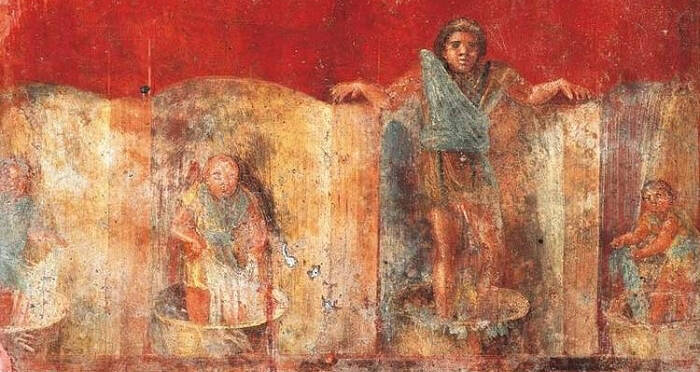

Pecunia non olet,-a Roman emperor said that. Wells, the narrator, Ponderevo uses the phrase to justify joining his uncle's business selling an ineffective and mildly harmful quack medicine: ". and true too was my uncle's proposition that the quickest way to get wealth was to sell the cheapest thing possible in the dearest bottle.

and in any case, who cares about filthy lucre?", one of the assembled captains murmurs " Non olet". In The Surgeon's Mate by Patrick O'Brian, when James Saumarez, 1st Baron de Saumarez is speaking of "glory to be picked up in the Baltic. In London Fields by Martin Amis, while smelling a wad of used £50 notes, foil Guy Clinch observes, " Pecunia non olet was dead wrong. At the time, Jack is beset with doubts about the source of his inheritance. The phrase pecunia non olet as a statement, not a question, is a famous one. I believe the question mark should have been outside the quotation marks. It's fine to translate pecunia non olet as 'money has no smell' because it conveys the same meaning. In the Pulitzer Prize–winning novel All The King's Men, by Robert Penn Warren (1946), protagonist Jack Burden muses that perhaps Vespasian had been right. Literally, yes, but things don't always have to translate literally. They regarded it as a slap in the face for the dilettanti and Die-hards, who replied by christening their new Warden Non-Olet." The subject had, if anything, rather recommended him to the Progressive Element. Lewis, the Warden of Bracton College is given the nickname "Non-Olet" for having written "a monumental report on National Sanitation. Scott Fitzgerald alludes to Vespasian's jest in The Great Gatsby with the phrase "non-olfactory money". The proverb receives some attention in Roland Barthes's detailed analysis of the Balzac story in his critical study S/Z. "Vespasian's axiom" is also referred to in passing in the Balzac short story Sarrasine in connection with the mysterious origins of the wealth of a Parisian family. Vespasian's name still attaches to public urinals in Italy ( vespasiano) and France ( vespasienne). The phrase pecunia non olet is still used today to say that the value of money is not tainted by its origins. When Titus said "No", Vespasian replied, "Yet it comes from urine" ( Atqui ex lotio est). The Roman historian Suetonius reports that when Vespasian's son Titus complained about the disgusting nature of the tax, his father held up a gold coin and asked whether he felt offended by its smell ( sciscitans num odore offenderetur). It was used in tanning, wool production, and also by launderers as a source of ammonia to clean and whiten woollen togas.

The urine collected from these public urinals was sold as an ingredient for several chemical processes. The saying has different meaning as pecuniario or money in Latin derives from pecus/pecoris meaning sheep/cattle, because animals in Roman times, and especially bred cattle represented wealth and could be bartered. Vespasian imposed a urine tax on the distribution of urine from Rome's public urinals (the Roman lower classes urinated into pots, which were later emptied into cesspools). One is reminded of the well-known Latin phrase, Pecunia non olet: Money doesn’t smell. The tax was removed after a while, but it was re-enacted by Vespasian around 70 AD in order to fill the treasury. Rockefeller saw himself vilified, by the muckraking journalist Ida Tarbell, as a “living mummy,” and “something indefinably repulsive.A tax on the disposal of urine was first imposed by Emperor Nero under the name of vectigal urinae in the 1st century AD. The “tangible benefits” of controversial donations are obvious: educating women and men, showcasing American ballet, or broadcasting “Sesame Street.” Of course the Kochs and the Epsteins of the world also benefit from their contributions, which marginally reduce their inherent loathsomeness in the eyes of many. should overcome the more abstract, symbolic considerations that might lead us to turn down such benefactions.” In an opinion circulated in 1979, then-Harvard president Derek Bok argued against the “symbolic” value of returning controversial gifts: “n the whole, I would be inclined to accept such donations,” Bok wrote, “on the ground that the tangible benefits of using the money. Harvard has grappled over the years with donations from the Sackler family, now reviled for their connection to the opioid crisis from convicted pedophile Jeffrey Epstein and from a sewerful of equally reprehensible characters, e.g., Saudi Arabian Crown Prince Mohammed bin Salman. So would I allow my child to be sheltered in a Koch-supported day-care center, or to watch WGBH-2, where David Koch sat on the board, or enjoy the American Ballet Theatre, which has a Koch-named performance space? Of course. But of late, Charles Koch has spoken out against some cornerstone Donald Trump economic policies, and has lined up on the side of the angels in condemning mass incarceration and the government’s ham-handed “war on drugs.”


 0 kommentar(er)
0 kommentar(er)
